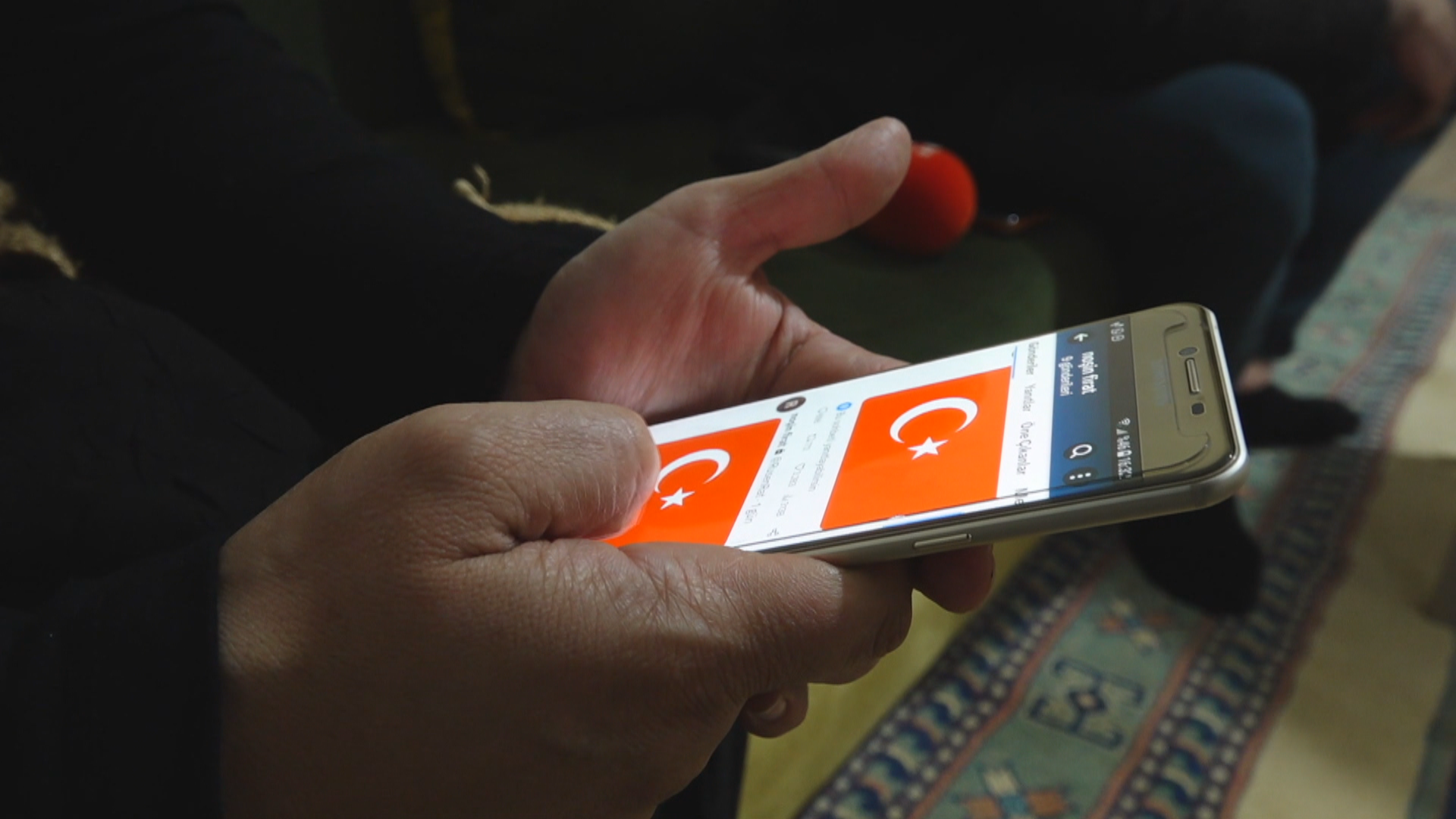ERBIL, Kurdistan Region - A Turkish court on Friday cancelled a ruling compelling the granddaughter of a revolutionary Kurdish leader to share the Turkish flag on her social media once a day in return for her freedom after she had been arrested for sharing the Kurdistan flag on social media.
Police recently raided the house of Rusen Firat, granddaughter of Sheikh Said, in Erzurum province, and arrested her for sharing the flags of Kurdistan and the pro-Kurdish Peoples’ Democratic Party (HDP) on her social media accounts nearly ten years ago. She was accused of propagating a terrorist organization.
Firat on Friday recounted to Rudaw’s Rawin Sterk how the police had raided her home and arrested a few days earlier.
“Many men came with their Panthers [armored vehicles]. They said, ‘Get out, get up.’ Had they struck the door once again it would have been crushed. When I opened the door, they entered the house with their shields and boots,” she said.
Her aunt also recalled the day.
“They insulted us, asking us to stand with our backs against the wall. They also searched us. I said, ‘We have just woken up. Why are you searching us?’ We all stumbled about. They took Rusen without asking any questions. I asked them what was happening and what crime we had committed to deserve the insult,” said Sidiqe Firat.
In a court in Turkey’s Erzurum province on Tuesday, Firat admitted sharing the flags of the HDP and Kurdistan on social media years ago. The Kurdistan flag was from a photo she had taken during a visit to the Kurdistan Region.
HDP is a legal political party in Turkey. The Kurdistan flag is the official flag of the Kurdistan Region, a legal entity within Iraq.
Firat explained that the judge questioned her loyalty to the Turkish flag.
“They asked if I had ever published the Turkish flag [on social media]. I said I had not because we have been brought up under this flag and live under it, so I had not seen any need to do so. When he asked why I had not published it, I said I never thought of that because we live in the country. Then he said he would punish me by compelling me to publish the Turkish flag [every day] for a month. I have always hated being forced to do things. It is difficult,” Rusen said.
She was released under judicial control and ordered to sign-in three times a week.
After she began sharing the Turkish flag on social media, her posts reached millions of people and scores of social media users slammed the court for the ruling. Three days later, the court cancelled the ruling.

The Diyarbakir Bar Association has filed a lawsuit against the court.
“The judge crossed his limits in this regard, imposing his personal feelings and opinion on the client. The judge imposes sharing the Turkish flag on social media as a ruling. This ruling violates the client’s basic rights. A judge cannot issue such a ruling,” Mehdi Ozdemir, a lawyer for the bar, told Rudaw.
Rudaw has learnt that the original complaint against Firat was filed by a Turkish nationalist.
Her grandfather, Sheikh Said, is a historical Kurdish figure who revolted against the newly-established Turkish state in Diyarbakir in 1925 and was hanged the same year. Tributes to his legacy have several times been the target of nationalist Turks.
Earlier this month, Turkish nationalists criticised Diyarbakir (Amed) municipality for naming a new boulevard after Sheikh Said, with some of them insulting him. Many politicians and lawmakers from the ruling Justice and Development Party (AKP) endorsed the municipality’s decision, expressing their respect for the legendary leader.
Sheikh Said was “one of the important figures of our social memory and an exemplary personality,” said AKP lawmaker Abdurrahman Firat, describing attacks on him as “baseless.”









Comments
Rudaw moderates all comments submitted on our website. We welcome comments which are relevant to the article and encourage further discussion about the issues that matter to you. We also welcome constructive criticism about Rudaw.
To be approved for publication, however, your comments must meet our community guidelines.
We will not tolerate the following: profanity, threats, personal attacks, vulgarity, abuse (such as sexism, racism, homophobia or xenophobia), or commercial or personal promotion.
Comments that do not meet our guidelines will be rejected. Comments are not edited – they are either approved or rejected.
Post a comment